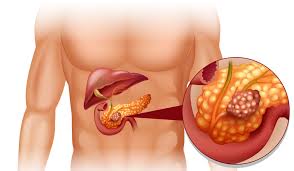
Breaking News
 Sunday FULL SHOW: Newly Released & Verified Epstein Files Confirm Globalists Engaged...
Sunday FULL SHOW: Newly Released & Verified Epstein Files Confirm Globalists Engaged...
 Fans Bash Bad Bunny's 'Boring' Super Bowl Halftime Show, Slam Spanish Language Performan
Fans Bash Bad Bunny's 'Boring' Super Bowl Halftime Show, Slam Spanish Language Performan
 Trump Admin Refuses To Comply With Immigration Court Order
Trump Admin Refuses To Comply With Immigration Court Order
 U.S. Government Takes Control of $400M in Bitcoin, Assets Tied to Helix Mixer
U.S. Government Takes Control of $400M in Bitcoin, Assets Tied to Helix Mixer
Top Tech News
 SpaceX Authorized to Increase High Speed Internet Download Speeds 5X Through 2026
SpaceX Authorized to Increase High Speed Internet Download Speeds 5X Through 2026
 Space AI is the Key to the Technological Singularity
Space AI is the Key to the Technological Singularity
 Velocitor X-1 eVTOL could be beating the traffic in just a year
Velocitor X-1 eVTOL could be beating the traffic in just a year
 Starlink smasher? China claims world's best high-powered microwave weapon
Starlink smasher? China claims world's best high-powered microwave weapon
 Wood scraps turn 'useless' desert sand into concrete
Wood scraps turn 'useless' desert sand into concrete
 Let's Do a Detailed Review of Zorin -- Is This Good for Ex-Windows Users?
Let's Do a Detailed Review of Zorin -- Is This Good for Ex-Windows Users?
 The World's First Sodium-Ion Battery EV Is A Winter Range Monster
The World's First Sodium-Ion Battery EV Is A Winter Range Monster
 China's CATL 5C Battery Breakthrough will Make Most Combustion Engine Vehicles OBSOLETE
China's CATL 5C Battery Breakthrough will Make Most Combustion Engine Vehicles OBSOLETE
 Study Shows Vaporizing E-Waste Makes it Easy to Recover Precious Metals at 13-Times Lower Costs
Study Shows Vaporizing E-Waste Makes it Easy to Recover Precious Metals at 13-Times Lower Costs
Scientists Discover Molecule That Triggers Self-Destruction of Pancreatic Cancer Cells

Pancreatic cancer, which maintains a 95% mortality rate, is resistant to all current treatments. Patients have extremely poor chances of surviving for five years after being diagnosed—and since the disease does not show symptoms until the advanced stages, it is notoriously hard to diagnose.
However, this new Tel Aviv University study finds that a small molecule has the ability to induce the self-destruction of pancreatic cancer cells. The research was conducted with xenografts—transplantations of human pancreatic cancer into immunocompromised mice. The treatment reduced the number of cancer cells by 90% in the developed tumors a month after being administered.
The research holds great potential for the development of a new effective therapy to treat this aggressive cancer in humans.
The study, which was published in the journal Oncotarget, was led by Professor Malca Cohen-Armon and her team at TAU's Sackler Faculty of Medicine, in collaboration with Dr. Talia Golan's team at the Cancer Research Center at Sheba Medical Center.
"In research published in 2017, we discovered a mechanism that causes the self-destruction of human cancer cells during their duplication without affecting normal cells," explains Prof. Cohen-Armon. "We have now harnessed this information to efficiently eradicate human pancreatic cancer cells in xenografts. The current results were obtained using a small molecule that evokes this self-destruction mechanism in a variety of human cancer cells.

 Smart dust technology...
Smart dust technology...

